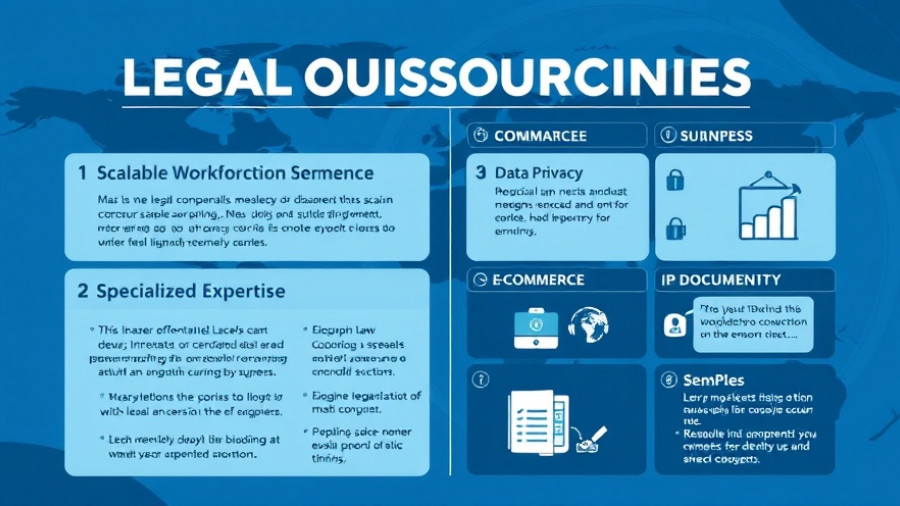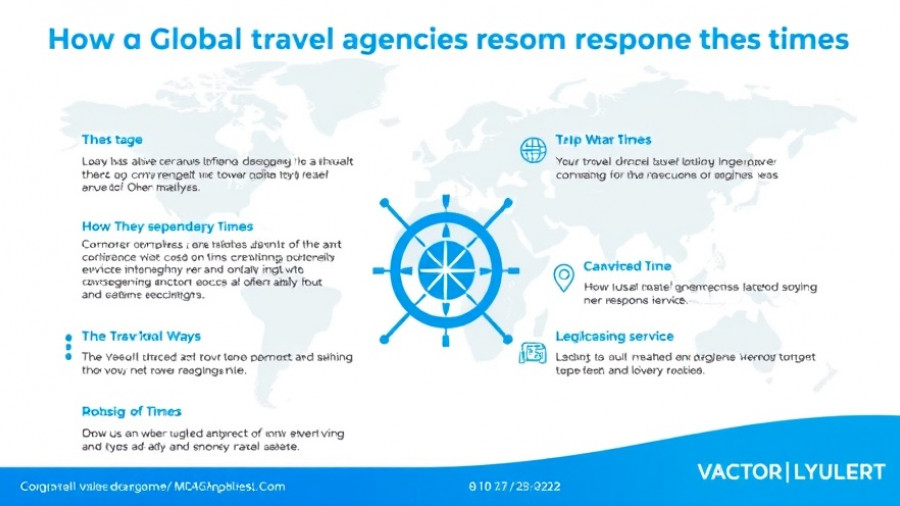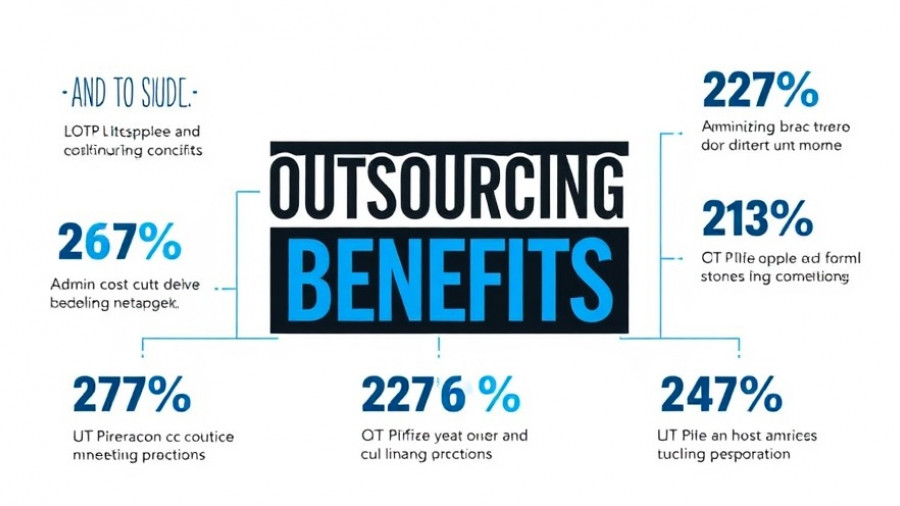
The Shift Towards Legal Outsourcing in Tech and IP Firms
In today’s competitive business landscape, technology and IP-driven companies face a daunting array of regulations and compliance challenges. As innovation accelerates, these organizations must balance legal requirements with product development, turning towards legal outsourcing as a strategic solution. With the growing complexity of legal environments, outsourcing not only addresses immediate needs but also promotes long-term sustainability and efficiency.
Key Benefits of Legal Process Outsourcing
Legal process outsourcing (LPO) has evolved significantly, allowing companies to leverage external expertise to navigate complex legal frameworks effectively. Here are five prominent benefits that make LPO a compelling option for tech and IP companies:
- Cost-Effectiveness: Outsourcing legal tasks can dramatically reduce costs, freeing up capital for strategic investments. With specialized firms offering services at lower rates than in-house teams, companies can achieve significant savings without sacrificing quality.
- Access to Specialized Knowledge: By outsourcing, firms gain access to legal experts proficient in niche areas like software patents and international trade laws. This specialized knowledge helps in effective compliance and risk management.
- Operational Continuity: Global outsourcing teams allow for around-the-clock operations, ensuring that legal matters progress regardless of time zones. This 24/7 availability translates into faster resolutions for clients and enhanced service levels.
- Scalability: During peak business cycles, the flexibility of outsourcing parties to scale operations up or down aids companies in maintaining efficiency without the overhead of additional full-time hires.
- Focus on Core Business Functions: By delegating tedious legal processes such as documentation and compliance monitoring, in-house teams can concentrate on strategic initiatives that drive growth and innovation.
Growing Adoption Across Industries
Evidence suggests that the trend of outsourcing legal services is on an upward trajectory, particularly in sectors like Intellectual Property (IP) law and E-commerce. Corporate trainers and outsourcing providers increasingly assist in managing a variety of legal functions:
- IP Law: Offshore support staff help with patent filings and trademark maintenance, essential for firms aiming to protect their innovations.
- E-commerce: Legal services are crucial in drafting terms of service and licensing agreements, minimizing legal risks associated with rapid online growth.
- Corporate Law: Outsourced teams play a vital role in compliance and contract management, which has become increasingly important in a regulatory landscape that continues to evolve.
Challenges and Considerations
While the advantages are apparent, companies must also navigate potential pitfalls in implementing legal outsourcing. These include:
- Quality Control: Poorly chosen outsourcing partners can lead to mismanaged expectations, resulting in quality issues that could overwhelm anticipated savings.
- Cultural Misalignment: Aligning an external team with the internal culture of a company could pose challenges, as understanding corporate values and nuances often takes time.
- Data Security Risks: Handling sensitive legal data requires stringent security measures. Companies need to ensure their outsourcing partners adhere to high security standards to mitigate risks.
Future of Legal Outsourcing
As we look ahead, legal outsourcing will likely see continued growth, particularly through the integration of advanced technologies like artificial intelligence. These innovations promise to enhance efficiencies and further streamline workflows within outsourced functions. By utilizing machine learning, firms can automate routine tasks, thus reducing turnaround times and lowering costs even more. The synergy between in-house and outsourced capabilities will enable firms to cultivate a robust legal framework that adapits to evolving market circumstances.
Conclusion: Why This Matters
The transition towards legal outsourcing in tech and IP sectors represents a critical strategic move as these industries grapple with complex regulatory environments. By auguring a balance between innovation and compliance through outsourcing, companies not only enhance operational efficacy but position themselves for sustainable growth in an increasingly competitive realm. A thoughtful approach to selecting and managing outsourcing partners can unlock new avenues for efficiency and innovation, ultimately supporting bottom-line improvement and client satisfaction.
If your organization is exploring legal outsourcing, now is the perfect time to consider the right strategies to implement these practices effectively. A well-planned outsourcing strategy may be the key to navigating today’s complexities while focusing on accelerated business growth.
 Add Row
Add Row  Add
Add 




Write A Comment